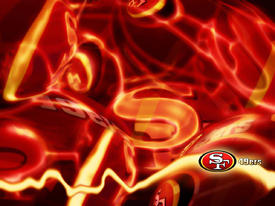We are pleased to announce that on March 4, 2025, an updated Rich Text Editor will be introduced in the MyFitnessPal Community. To learn more about the upcoming changes, please click here. We look forward to sharing this new feature with you!
Muscle weight?

lisamsanford1229
Posts: 20 Member
Can jogging add muscle therefore the scale is not moving? I lost 70 pounds. The weight was coming off steadily. Then a month ago I started jogging/running 3 miles every night. Since then my weight has stayed the same. I thought cardio makes you lose weight? 

0
Answers
-
Are you eating back those jogging calories?
If so, there's your problem. Either the estimate of additional calories burned (compared to sitting around instead) is inflated, and/or your NEAT is going down while you recover, and therefore eating back all the calories means you're in a calorie surplus above where you thought you were.
You may have gained some muscle, but if you were in a calorie deficit your weight would still be going down. You may also have some additional water retention due to this recently increased exercise.3 -
A month ago: water retention and a bit of muscle could be the culprit.
As for eating back (too many) exercise calories, I like this calculator to judge how realistic my fitness tracker's estimates are: https://exrx.net/Calculators/WalkRunMETs
Set the calculator to 'net' instead of 'gross' if you're comparing to the adjustment you get in MFP.1 -
You don't say how often you step on the scale. But it's likely a combination of water retention, maybe a bit of constipation due to drinking too little after exercising, eating too many calories back after the run. Note, if you use MFP as it's intended then you should eat back the exercise calories as exercise is for health and not weightloss. But exercise calories are often grossly overstated. And also, if you run every day coming from nothing you're not giving your muscles time to recover. Stress might also play a role, and stress increases cortisol, and also water weight.1
-
It's very, very unlikely that muscle mass gain will happen fast enough to mask a meaningful rate of fat loss on the bodyweight scale.
A really good rate of muscle mass gain for a woman, under ideal conditions, would be about a pound a month. Ideal conditions include a good, challenging progressive strength training program faithfully performed, very good overall nutrition (especially but not exclusively adequate protein), relative youth, favorable genetics, a calorie surplus (i.e., weight gain), and probably some other things I'm forgetting. (For a man, maybe 2 pounds a month.)
It's not that you can't gain muscle from running or in a calorie deficit, necessarily, but it would likely happen even slower than that pound a month.
On the flip side, a pound a month of fat loss is about the slowest observable fat loss rate, and that can even play peek-a-boo for many weeks with water/waste fluctuations on the body weight scale.
It's likely that if running is new to you, you'd add some water weight. Also, Lietchi's right about the issue of net vs. gross calories, and potential over-estimates of exercise calories. Retro has a point about dramatically increased exercise possibly bleeding calorie burn out of daily life (resting more, maybe sleeping more, less spontaneous movement like fidget-y stuff and more, etc.).
Yes, cardio burns calories . . . but beyond that, it doesn't all by itself "make you lose weight". (I did meaningfully large amounts of cardio for around a dozen years, and stayed class 1 obese, because the calories are pretty easy to eat back when not calorie counting. If you're counting, accuracy is still important.) And yes, cardio is good for a body health-wise - worth doing. But the water weight issues and the calorie estimation issues (NEAT and exercise) do matter.
You've lost a lot of weight, you look great . . . you're probably at a point where it's realistic to expect weight loss to slow down - or to slow it down intentionally. If you're calorie counting, I don't know what loss rate you're shooting for, and you don't say how fast you lost in (say) the month before you starting the 3 miles per day. Knowing that would help us give you more nuanced answers.
Right now, my bet would be on water weight weirdness from the new exercise, and the likelihood that you'll see a scale drop sometime in the next month, assuming you're not both overestimating and eating back those exercise calories.
Hang in there, you're doing great, the running is worthwhile health-wise, and the weight question will sort itself out fairly soom.
Best wishes!
2 -
Cardio make you lose calories, not weight.1
-
PrincezzPri wrote: »Cardio make you lose calories, not weight.
That makes no sense at all. Sorry. A calorie is a unit of measurement, such as grams, watts, feet, degrees celsius... You also don't say that switching on the light makes you lose watts. Every movement uses energy as source, and just existing does as well. And this energy is commonly expressed in calories. Or kilojules in some parts of the world.1 -
If you're in a calorie deficit along with that cardio...............you'll lose weight.PrincezzPri wrote: »Cardio make you lose calories, not weight.
A.C.E. Certified Personal and Group Fitness Trainer
IDEA Fitness member
Kickboxing Certified Instructor
Been in fitness for 40 years and have studied kinesiology and nutrition
0 -
If you’re running regularly, grab a polar chest strap to measure calorie burn (etc).
For example: I do a 1hr hike 1-3 times a week. My wrist-worn Fitbit estimated 630 cals burned while my chest-worn polar estimated 320.0 -
SoCalSwimmerDude wrote: »If you’re running regularly, grab a polar chest strap to measure calorie burn (etc).
For example: I do a 1hr hike 1-3 times a week. My wrist-worn Fitbit estimated 630 cals burned while my chest-worn polar estimated 320.
It only works though if your hr max is set correctly. If you use the standard of whatever device you're using then you might also be up to a surprise in either direction.2 -
OP you have had an especially aggressive rate of weight loss.
Based on information provided in a previous post you have lost 2 more pounds in less than a month.
It’s not the 3 or more pounds you lost earlier in your process. And that is to be expected.
I’m sorry it’s not faster. But you really don’t need to worry about your rate of weight loss.
0 -
SoCalSwimmerDude wrote: »If you’re running regularly, grab a polar chest strap to measure calorie burn (etc).
For example: I do a 1hr hike 1-3 times a week. My wrist-worn Fitbit estimated 630 cals burned while my chest-worn polar estimated 320.
It only works though if your hr max is set correctly. If you use the standard of whatever device you're using then you might also be up to a surprise in either direction.
Good call. My polar is set appropriately, but I hadn’t set my Fitbit yet.
I did an hr hike today and tested both devices. Fitbit came in 150 over what polar did. Not great, but not absurd like previously mentioned.
0 -
You've probably upped your calories to overshadow any weight loss that the running would produce.0
-
Jogging can build muscle, especially in your legs, which may offset fat loss on the scale. Muscle is denser than fat, so it's possible you're still losing fat but gaining muscle.0
-
Jogging can build muscle, especially in your legs, which may offset fat loss on the scale. Muscle is denser than fat, so it's possible you're still losing fat but gaining muscle.
TO is not building muscle in such quantities that it shows on the scale. That requires a bit more than jogging a short distance a few times per week, especially for a woman.2 -
My money is on water weight weirdness. Do you experience any water weight loss after rest days?
If not, it’s highly likely to be net vs. gross calories!
0
Categories
- All Categories
- 1.4M Health, Wellness and Goals
- 394.3K Introduce Yourself
- 44K Getting Started
- 260.4K Health and Weight Loss
- 175.6K Food and Nutrition
- 47.5K Recipes
- 232.7K Fitness and Exercise
- 441 Sleep, Mindfulness and Overall Wellness
- 6.5K Goal: Maintaining Weight
- 8.5K Goal: Gaining Weight and Body Building
- 153.1K Motivation and Support
- 8.1K Challenges
- 1.3K Debate Club
- 96.2K Chit-Chat
- 2.5K Fun and Games
- 4K MyFitnessPal Information
- 22 News and Announcements
- 918 Feature Suggestions and Ideas
- 2.3K MyFitnessPal Tech Support Questions










